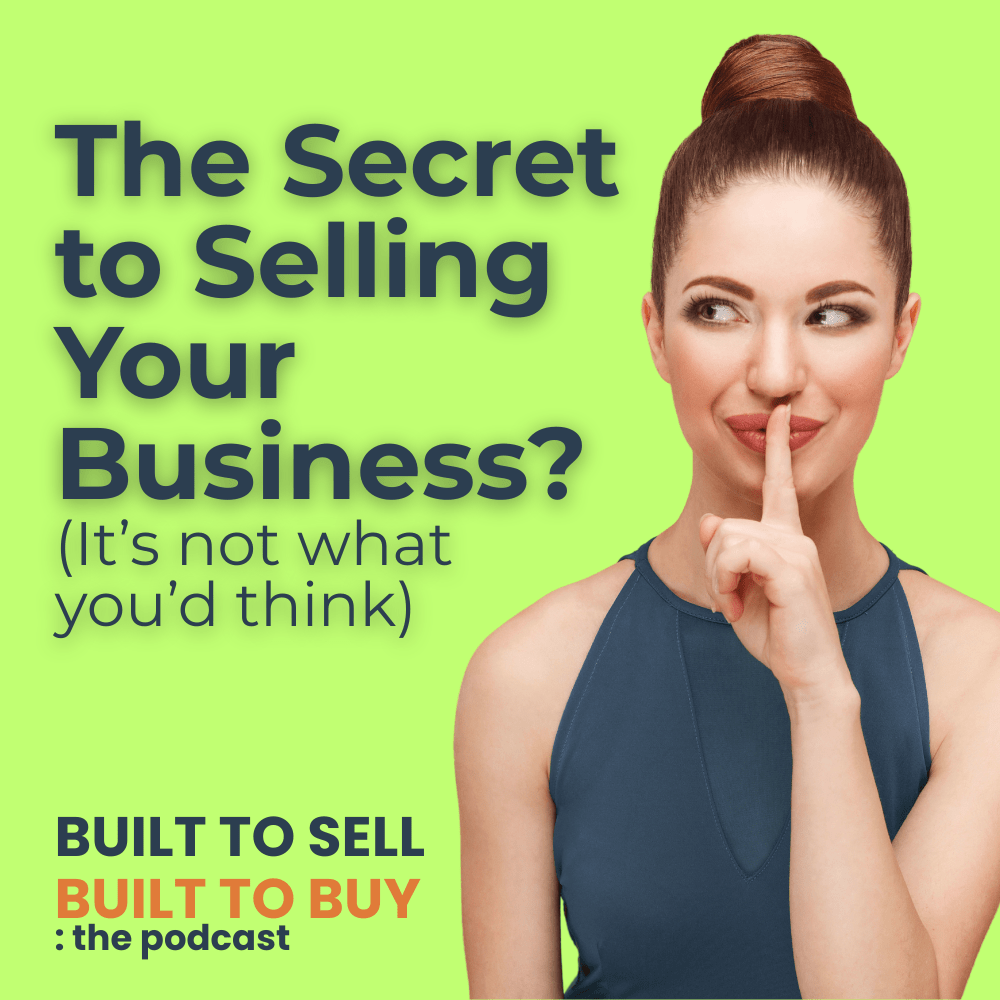
Positioning Your Business for the Right Buyer: The Hidden Multiplier Most Sellers Miss
Share
When it comes time to sell, most business owners focus on the numbers. But buyers don’t just buy profit — they buy fit. Here’s how to position your business so the right buyer sees themselves in your story, pays a premium, and moves fast.
Why Positioning — Not Just Profit — Drives Better Deals
Most sellers think that a great P&L, clean books, and solid systems are enough to close a premium deal. They’re not wrong — but they’re missing the secret ingredient that separates “good” exits from great ones.
That ingredient is positioning.
Buyers don’t just fall in love with your margins. They fall in love with the future they see inside your business. If they can’t see themselves leading your team, living your values, and taking your vision forward — they walk. Fast.
The Real Question: Who Is the Right Buyer?
Before you prepare your numbers, you need to define your buyer. Not just what they can afford — but how they think.
- Financial Buyers look for returns and stability.
- Strategic Buyers want synergy — a fit that unlocks growth.
- Lifestyle Buyers want freedom and cashflow.
- Values-Aligned Buyers may come from any industry — but they buy because your mission matches theirs.
The best deals often come from outside your expected circle. And those buyers only show up when your business is positioned to speak their language.
Why Core Values Matter More Than You Think
Buyers are looking for confidence. And nothing builds confidence like values alignment.
Your values shape:
- How you lead
- How your team operates
- How decisions get made
- How customers are treated
When buyers share your values, trust happens faster. Transitions go smoother. Culture sticks. And the handover is less about instructions and more about shared beliefs.
This is why I say: When values align, industry boundaries disappear.
The 4 Pillars of Magnetic Positioning™
This is the framework I use inside my Brand Mastery Course — and with private clients preparing for exit. It turns vague beliefs into a strategic asset that buyers can feel, understand, and act on.
1. Clarify Your Core Values
Skip the clichés. No more “integrity” and “teamwork” unless you can prove them. Ask yourself:
- What do we stand for — even if it costs us money?
- What would I never compromise?
- What would I fire a client over?
If you can’t answer these honestly and clearly, your values are invisible to buyers.
2. Embed in Your Operations
Your values can’t live in your branding alone — they need to show up in your:
- Hiring and onboarding
- Team meetings
- Decision-making
- Customer experience
When buyers see your culture in action — without you present — they believe your business can run without you.
3. Express Through Your Brand
A brand is a promise. Values are how you keep it.
If a buyer spends 10 minutes on your website, can they feel your values? Do your tone of voice, visuals, and customer reviews all reinforce the same narrative?
Consistency builds credibility. And credibility drives buyer confidence.
4. Tell the Buyer-Facing Story
Now take everything you’ve built and wrap it into your Information Memorandum, pitch deck, and conversations.
Don’t wait until due diligence to explain what makes your business special. Lead with your values story. Show how it’s driven retention, referrals, staff loyalty, or strategic growth.
Buyers don’t pay more for spreadsheets — they pay more for belief.
Case Study: From Generic to Magnetic
One of my clients had a solid business: $480k EBITDA, reliable team, good systems.
But the positioning? Flat. The IM was all numbers, no narrative. Values weren’t mentioned. The founder’s “why” was missing. Buyers walked away.
We reframed the entire business around its core values. Rewrote the IM. Created a pitch deck that told the story of the founder’s mission, the team’s culture, and the impact on clients.
The result? A buyer from outside the industry — but fully aligned with the vision — offered 3.4x EBITDA.
Same business. New story. Bigger outcome.
Tools to Help You Do It
If this resonates and you want to turn your values into a strategic advantage, here are three tools to get started:
- Business Readiness Report – Scores your business across the drivers of value, including culture, values, and operational independence.
- Brand Mastery Course – Helps you define your values, express them through your brand, and build a story buyers can believe in.
- Exit Strategy Roadmap – A practical guide to prepare for sale over 6–36 months, with clarity at every step.
Recap: What Buyers Really Want
- ✅ A business that reflects their values
- ✅ A team that operates without the founder
- ✅ A story that makes sense to them
- ✅ A culture they can trust
- ✅ Proof that what you say matches what you do
This is the future of dealmaking. And it’s how you turn preparation into profit.
Let’s Work on It Together
If you’re thinking, “This is what my business needs — but I don’t know where to start,” that’s where I come in.
In one strategy session, we’ll:
- Define your ideal buyer
- Diagnose your current positioning
- Build a plan to shift how your business is seen
You don’t need to have it all figured out — you just need to be willing to work on it.
👉 Book your session at sampenny.com/strategy
Further Reading
- Exit Planning for Business Owners: Start Sooner, Exit Stronger
- Systemise to Maximise: How to Build a Business That Doesn’t Rely on You
- How to Spot (and Build) an Owner-Independent Business
- Business Sale Checklist: What Buyers Are Really Looking For
- What Does a Business Coach Actually Do? (And How They Add Value Before a Sale)
